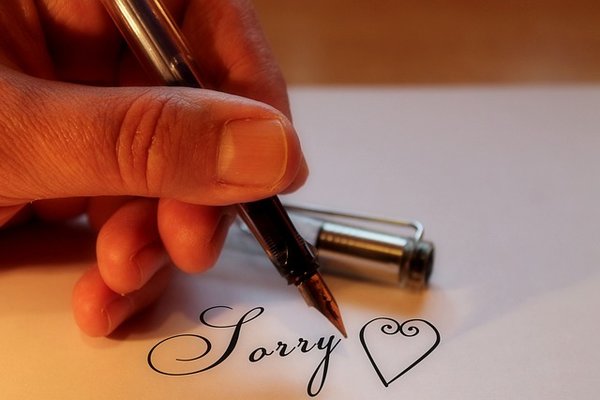
In a perfect world we wouldn’t ever have to apologize…because we wouldn’t be doing anything wrong of course, not because we just weren’t getting caught. But apologizing is often necessary especially when it comes to keeping the peace and growing in our romantic relationships. Some research has been done to figure out just how to make those apologies mean the most so that they stick the first time. Here’s what we currently know.
Some research done at Ohio State University looked into the topic and they had some pretty helpful findings. To do their research they tested how 755 different people reacted to apologies. From studying their reactions they found that there were six key elements to apologies that proved to be the most effective.
The study actually took place in two separate parts. For the first part they got 333 people to participate through a program with Amazon. They then all read a scenario and then had to rate the possible apology options. The scenario put them in the imaginary place of being of charge of hiring at a company, where they interviewed someone who was caught lying about a tax return.
How the person apologized was what was important in the situation, but they were told which apology components were being used in each apology. They then rated the presented apology options on how effective and believable they were.
Next the researchers got 422 undergraduate students to read the same scenario, but they were not informed about the apology components that each apology contained before they were asked to rate the apologies.
The results between the two studies were not exactly the same, but they did determine that the more elements an apology had in it the more likely it was to be taken seriously.
One thing that the researchers made clear was that eye contact and using sincere facial expressions is key. (So you probably have to mean it to do that part right.)
Next make it clear that your intentions were not to hurt or do wrong. There is a big difference between trying to put someone down and doing some teasing that affects them in a deeper way.
You also have to take responsibility for what went wrong and not try to play it off somewhere else. Generally people just want to hear that you know that you did something wrong and that you feel bad enough about it that you don’t have intentions to do it again. Otherwise why would you not.
If you apologize for something and then do it again, even if it is a small thing, it is going to seem like you don’t care. If you do actually care, that might be a good time to think about why you did it again and if you are willing to change or not.
Asking for forgiveness is fine but the studies showed it didn’t help the other person do it, they more so are interested in your ability to realize what you did wrong and then make the appropriate changes to not do it again.

Lol so we have to mean it for it to work is what is true